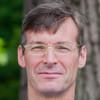Critical Perspectives on the Historiography of "Western Science"
Much work has been done in recent decades critiquing the traditional view of the rise of "Western science" from different methodological and disciplinary perspectives, perhaps only unified by a sensibility that the concept of "Western science" is problematic or inadequate despite being so central in the public discourse of science and its history. This working group addresses questions about traditionally received notions of "Western Science."
The working group is part of a project to produce an edited volume and online resources for use by students, teachers and non-specialists. Contributors will present drafts and receive feedback and critique from other participants as they craft their essays. The goal of this format is to enable authors to benefit from questions and issues motivating scholars in neighboring disciplines, to generate discussion between scholars, and to produce a volume in which the essays genuinely engage with each other.
Please set your timezone at https://www.chstm.org/user
Respectful Behavior Policy
Participants at Consortium activities will treat each other with respect and consideration to create a collegial, inclusive, and professional environment that is free from any form of discrimination, harassment, or retaliation.
Participants will avoid any inappropriate actions or statements based on individual characteristics such as age, race, religion, ethnicity, sexual orientation, gender identity, gender expression, marital status, nationality, political affiliation, ability status, educational background, or any other characteristic protected by law. Disruptive or harassing behavior of any kind will not be tolerated. Harassment includes but is not limited to inappropriate or intimidating behavior and language, unwelcome jokes or comments, unwanted touching or attention, offensive images, photography without permission, and stalking.
Participants may send reports or concerns about violations of this policy to conduct@chstm.org.
Upcoming Meetings
There are no currently scheduled upcoming events.
Past Meetings
-
December 10, 2024
Beyond the Golden Age: Non-Western Science in the Persianate World (1500-1750) after the Supposed Death of Science in Islam
Younes Mahdavi and Peter Barker, University of Oklahoma
Abstract: In the first section we will explain the Decline Thesis in detail. Next we will describe the education of the Islamic scholars who are today counted as scientists and the patterns of their careers. Even the most advanced education in technical subjects like astronomy and medicine was conducted as one-to-one, teacher to student training. Since the teachers, especially in the case of astronomy, moved frequently because their main careers were in political administration or diplomacy, both education and research were distributed geographically, and seldom concentrated into what we would today call research centers. The situation was only slightly different in the case of medicine, because hospitals served as centers of teaching and research. But even so, training was provided and certified one-on-one, and students frequently travelled to many different teachers in the course of their educations. The third section of the paper describes how original research was publicized. The primary vehicle was a book genre called a commentary, which in the West has come to denote a derivative work that departs little, if at all, from the text it is commenting on. In the Islamic world, however, commentaries played the same role as research journals today, communicating new results and creating a dialogue between earlier and later research. Important works created not just chains but ever expanding cascades of commentaries, glosses and supercommentaries. In the fourth and fifth sections we apply these ideas to medicine and astronomy showing how these categories reveal vigorous research traditions in Safavid Persia and Mughal India, into the mid-1700s, and decisively refute the Decline Thesis.
-
June 24, 2024
"Separating the West and Non-West in Discourses of Scientific Deficiency"
Suzanne Moon, University of Oklahoma
and
"Surrounding the Adoption of 'Western Science': A Historiographical Reflection on Choe Han-Gi and His Kihak in South Korea"
Jaehwan Hyun, Pusan National University, Busan
-
May 24, 2024
Paul Keyser, Independent Scholar
"Neither Triumph Nor Telos"
and
Abigail Nieves Delgado, Utrecht University, The Netherlands
Juliana Gutiérrez Valderrama, Universidad de Los Andes, Colombia
"Othering knowledge: The use of the prefix 'ethno' in science"
-
April 23, 2024
Michael Gordin, Princeton University
"Genghis Khan with a Nuclear Reactor: Three Centuries of 'Western Science' in Russia"
Roy Wagner, ETH Zürich
"Indian Mathematics Can’t Win"
-
March 22, 2024
Elise Burton, University of Toronto
James Poskett, University of Warwick
Suman Seth, Cornell University"When Racial Science Became ‘Western’"
-
January 23, 2024
Claire Fanger, Rice University"The changing shapes of science: Magic, meta-knowledge, and reality in medieval Christian thought"
Group Conveners
-
Babak Ashrafi
Executive Director, Consortium for History of Science, Technology and Medicine
-

Darin Hayton
Darin Hayton is Associate Professor of History and Chair of the Department of History at Haverford College. His research concerns the history of science in Early Modern Europe, Central Europe, and the late Byzantine Empire.